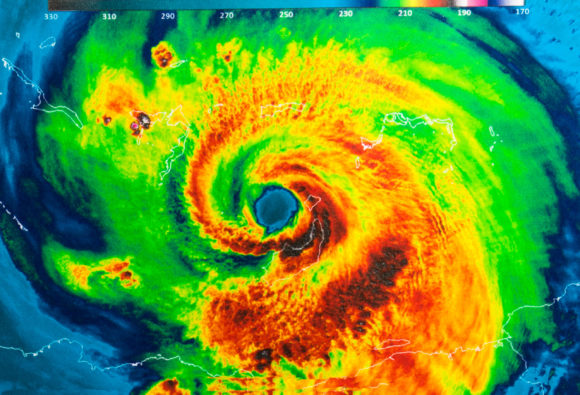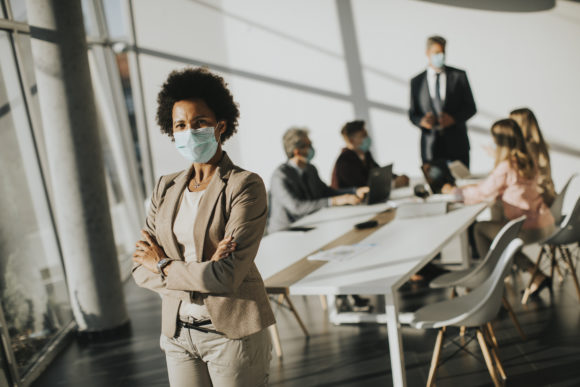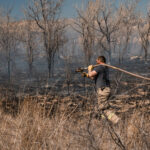COVID-19 has thrown the world into a tailspin over the past several months, and businesses everywhere have had to adjust their models to accommodate the new environment. With hurricane season now in full swing, planning and preparation for natural disasters must also change.
The tried and true preparation measures that have worked in the past may no longer suffice in the midst of the pandemic. This shift further stresses businesses operating in hurricane-prone areas, who must prepare for the season within the new constraints of the virus. There’s a lot to think about, at a time when executives already have more than their share of worries. As plans are developed, it’s important to keep resulting insurance implications in mind.
Business models and business conditions have changed. Planning and preparation must change as a result.

COVID-19 has heavily disrupted supply chains, and the resulting declines in availability necessitate advanced planning to make sure businesses have the proper inventory in place for a storm. From supplies for the physical property such as chainsaws, fuel for generators, plywood, pumps and other key machinery to human survival needs like PPE, disinfectants, water, food items, batteries, first aid kits, and medications, it may be a greater challenge than usual this year to predict which items will be in short supply. Businesses should start early to ensure they have what they need to be both safe and compliant.
Social distancing is a new need to consider across all industries, especially with the potential for additional on-site workers such as outside responders, contractors and vendors in the event of storm damage. Businesses should have formalized procedures for protecting ALL workers that can be used during response and restoration periods.
Industry-specific issues will also arise. In the restaurant industry, for example, some businesses have had to completely redesign how they operate, with new processes for delivery, pick-up methods, etc. Others may have significantly altered their physical spaces to accommodate social distancing. Restaurants that have shifted their models to accommodate increased outdoor dining or curbside purchases must now consider whether their new outdoor areas are covered by insurance. They must also examine physical property protections such as sprinkler systems, alarms and security procedures to ensure that all are up to date and maintained.

As always in the aftermath of a storm, business continuity is key. Employers should be sure to have an up-to-date formal business continuity plan in place, keeping in mind new situations like split-shifts. This plan should be shared with key staff well in advance of a natural disaster. Consider what may be different about business operations due to the pandemic; for instance, how will the business handle employees that may have been working from home and are now displaced?
All of these changes have insurance implications.
Here are some important insurance considerations for businesses:
- Have you reviewed your clients’ operational changes?
- Has the property changed and are the changes reflected in property policies?
- How are new business models factored into hurricane preparation and property insurance for your clients?
- Are insurance valuations up to date and have insureds duplicated key documents off-site or stored electronically?
- Have you explored workers’ comp policies with your insureds working in a pivoted way?
- Are clients following recommended hurricane risk management procedures, and are they taking advantage of resources provided by their insurance carriers?
Above all, be prepared.
The 2020 hurricane season has already proved itself to be an active one, with a record six named storms by the second week of July, and forecasters are predicting it will remain an above-average season. This is not the year for anyone to be caught unaware. We’ve had enough surprises already this year, and COVID-19 and civil unrest have already put enough pressure on business sustainability. Armed with the knowledge that storms are coming, companies should prepare for the 2020 hurricane season with more diligence than ever. By the time there’s a storm on the horizon, well-prepared businesses should already be prepared to respond.
Topics Catastrophe
Was this article valuable?
Here are more articles you may enjoy.



 USAA to Lay Off 220 Employees
USAA to Lay Off 220 Employees  Dubai Floods Expose Weaknesses to a Rapidly Changing Climate
Dubai Floods Expose Weaknesses to a Rapidly Changing Climate  Wildfires Are Upending Some of the Safest Bets on Wall Street
Wildfires Are Upending Some of the Safest Bets on Wall Street  Allstate Reports $731M in Q1 Pretax Catastrophe Losses
Allstate Reports $731M in Q1 Pretax Catastrophe Losses 




